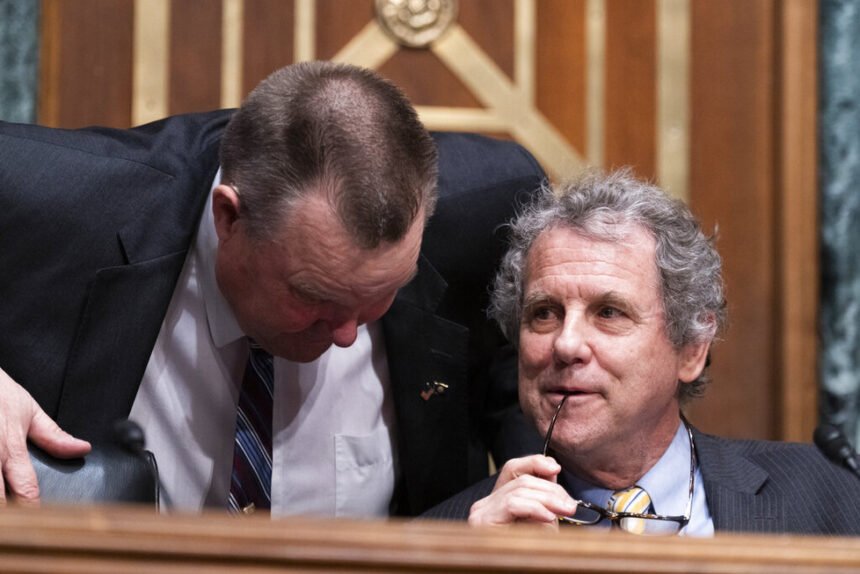The 2024 Senate battle is already heating up, with senators announcing retirements and reelection campaigns, and candidates already jumping into races in West Virginia, Indiana, Ohio and California. Republicans are looking to the National Republican Senatorial Committee to help set the tone for the election cycle and deliver better general election candidates. Meanwhile, Democrats are hoping to retain their slim majority and are focusing on defending three vulnerable incumbents and five states where President Joe Biden won narrowly in 2020.
The upcoming months are critical for both parties, as veteran senators decide whether to retire, House members and statewide officials size up Senate runs, and campaigns launch. Already, Republican candidates Matt Dolan (Ohio), Alex Mooney (West Virginia) and Jim Banks (Indiana) have entered the fray, while the expected retirement of Sen. Dianne Feinstein (D-Calif.) has created a prime opportunity for Rep. Katie Porter (D-Calif.).
Democrats are also keeping an eye on Michigan’s open seat, where Rep. Debbie Dingell and Elissa Slotkin are looking at bids, in addition to any number of Republicans, including Rep. John James. Meanwhile, Sens. Jacky Rosen (D-Nev.) and Tammy Baldwin (D-Wis.) have committed to running for reelection, and Sen. Tim Kaine (D-Va.) and Sen. Bob Casey (D-Pa.) are expected to follow suit. In Arizona, Sen. Kyrsten Sinema (I-Ariz.) is undecided as Rep. Ruben Gallego (D-Ariz.) considers a bid, while Republicans Kari Lake and Blake Masters may both run for the GOP nomination against more centrist opponents.
On the Republican side, former Gov. Mitch Daniels (R-Ind.) is visiting Washington to meet with GOP senators, and Ohio state Sen. Matt Dolan is expected to hit the Hill in February for his own round of Senate meetings. National Republican Senatorial Committee Chair Steve Daines (R-Mont.) has indicated he’s willing to intervene in primaries if needed to produce viable candidates, though it may be a tough decision down the stretch.
The battle for control of the Senate in two years may be just beginning, but it’s already heating up. With so much at stake, the coming months will be critical for both parties as they vie to determine who wins the chamber next fall.


